Over the past 20 years, ZOA completed many emergency relief and recovery projects in Afghanistan. The country is not only afflicted by many forms of violence. Natural disasters have also badly hit the already vulnerable local population. ZOA provided emergency relief after both flooding and large-scale droughts in different locations. “ZOA leaves behind a visible footprint”, says Rina Teeuwen, who worked for ZOA in Afghanistan.
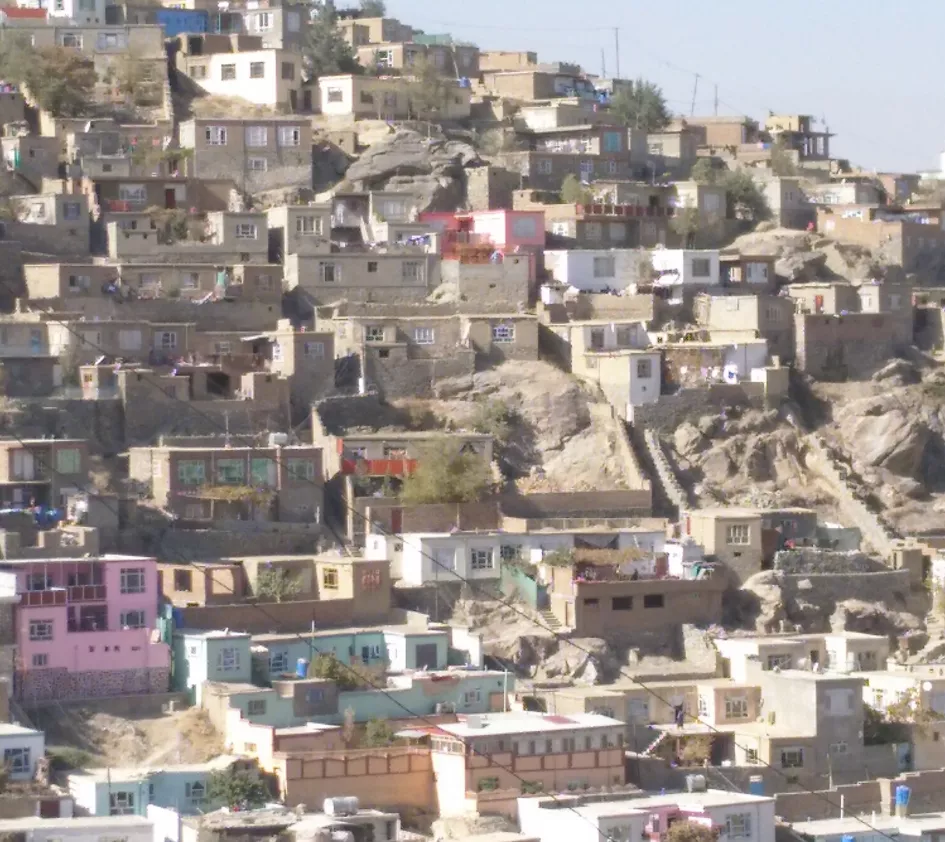
ZOA is leaving Afghanistan
With a heavy heart, ZOA is leaving Afghanistan after nearly 20 years of emergency relief and recovery.
nearly 20 years of relief and recovery
ZOA leaves behind a visible footprint
It's a difficult decision to leave, confirms Edwin Visser, ZOA’s chief programme director. “The situation in Afghanistan is far from going well, but major donors barely want to invest there anymore. We can’t carry on.”
We made a difference in many people’s lives with practical help: digging water wells, repairing houses, building schools including girls’ schools, helping farmers, and setting up over 200 women’s groups.
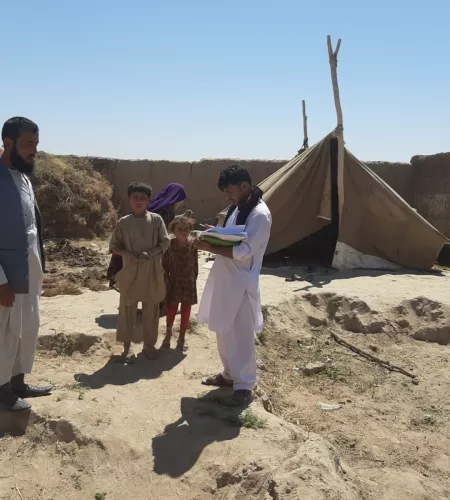
We also supported women in prison, and we worked to build peace in villages. Our projects stretched from Uruzgan in the violent south to the provinces of Sheberghan and Sari Pul in the inhospitable north. We are truly leaving behind a lasting legacy.
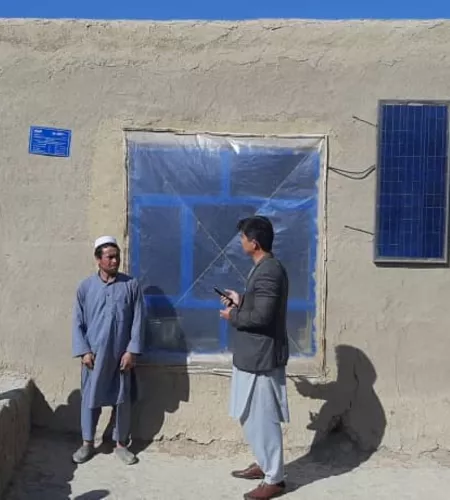
Conflict management
ZOA’s comprehensive approach enabled us to bring hope and a fresh perspective to many Afghan families. Rina cites an example: “We helped around 500,000 families in the province of Sari Pul. Via the National Solidarity Programme – which is funded by the World Bank – ZOA provided training in good governance. As a result, village councils invested in infrastructure and schools. We also provided training in conflict resolution, not only to village councils but also in schools.”
In this way, ZOA could help two northern provinces resolve over 7,600 conflicts, after mediation by both male and female mediators. This prevented a great deal of suffering. Moreover, every village council has an equal number of men and women. This encourages women to think along and participate in the discussion.
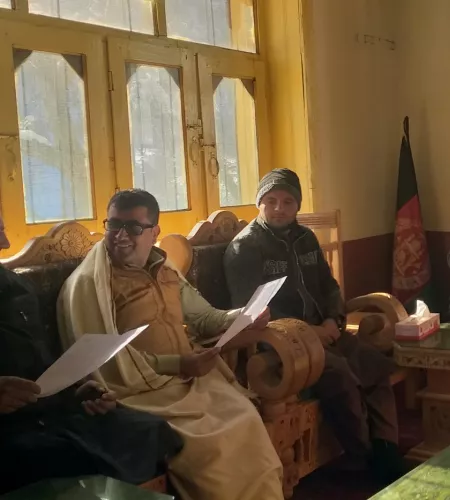
Hygiene training
"Further examples of ZOA’s comprehensive approach include the over 2,000 latrines and nearly 6,000 water wells and pumps that we built together with local residents. “Each well provides an average of 25 families with clean water. Thus, many families enjoy access to clean water. Moreover, the families received information about good hygiene and sanitation”, says Rina.
After all, good health requires good hygienic habits. In this way, we hope to prevent disease and death, particularly children’s deaths. In every village where ZOA worked with this programme, we trained some local residents on how to educate others about hygiene.
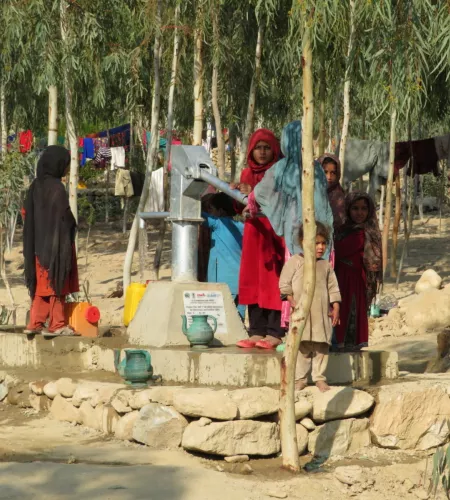
Support for Afghan women
Supporting Afghan women was a priority in ZOA’s work over the past two decades. One example of this is our project in a women’s prison in Sheberghan. Women are incarcerated there for ‘moral crimes’, such as ending an engagement, having a relationship that was not accepted, or fleeing domestic violence. ZOA also helped establish more than 200 women’s groups. These groups allow women to help each other develop their economic and social competencies. The groups also work to prevent child marriages.
Our colleague Anna from Afghanistan is a shining example. She was married off at the age of 14, gave birth to seven children, and passed through many difficult years – partly due to domestic violence – but she fought bravely to escape her misery. She has even become a role model for others, and her husband is now proud of her.
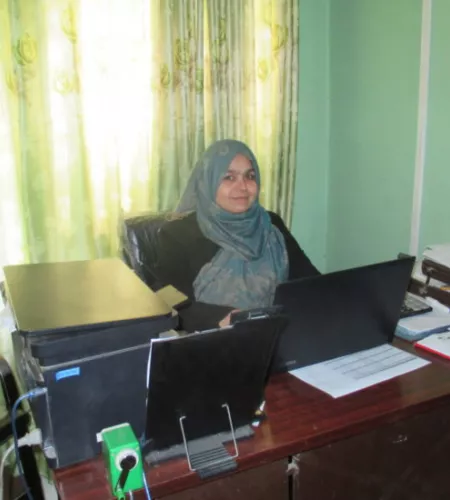
Anna:
I listen to the stories shared in the women’s groups, and I can encourage these women. I know all too well how difficult life can be. I consider with them what might be possible, and how they can take initiative to improve their situation.
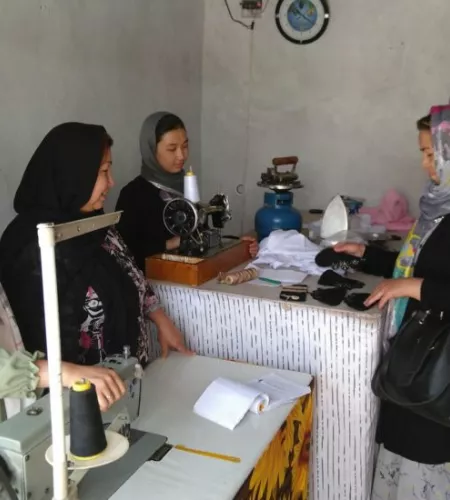
More than 4,000 women are members of a self-help group. Many of them start a small business with help from the group’s joint funds.
Positive
ZOA’s departure is approaching. We are handing our projects over to local colleagues who have worked with us for years, and thus have gained the necessary experience and skills. Rina sees a positive side to this.
I am encouraged to see that the increased resilience of women has delivered some very concrete results. Not only our male colleagues but also our female colleagues have started their own organisations and are raising funds. I am happy to hand the work over to them!
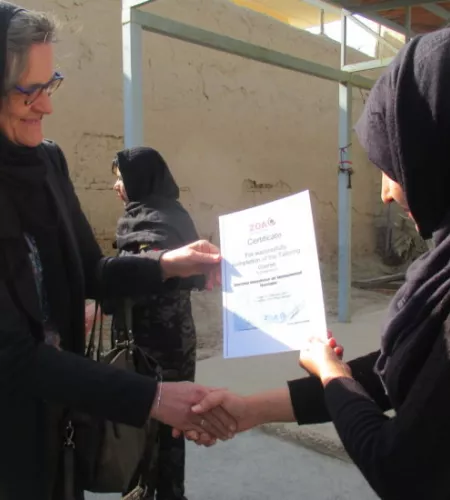
Together we are here for people in Afghanistan. With your support, we were able to help people in Afghanistan for nearly twenty years. There are many other places in the world where ZOA offers support to people in need. Will you join us, so they won't be left alone?
Give now and help people in need
I want to be there with ZOA to help them worldwide.
